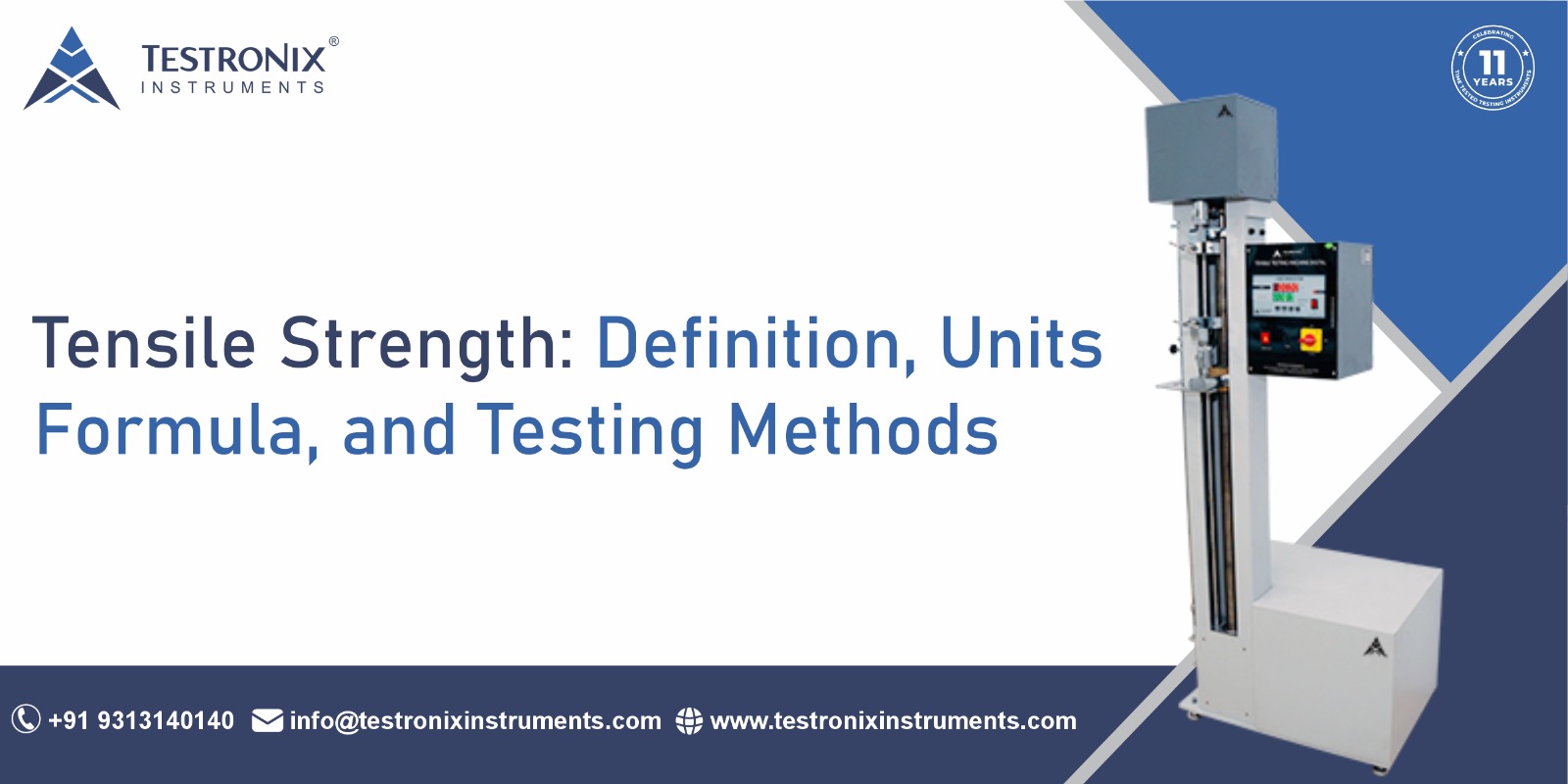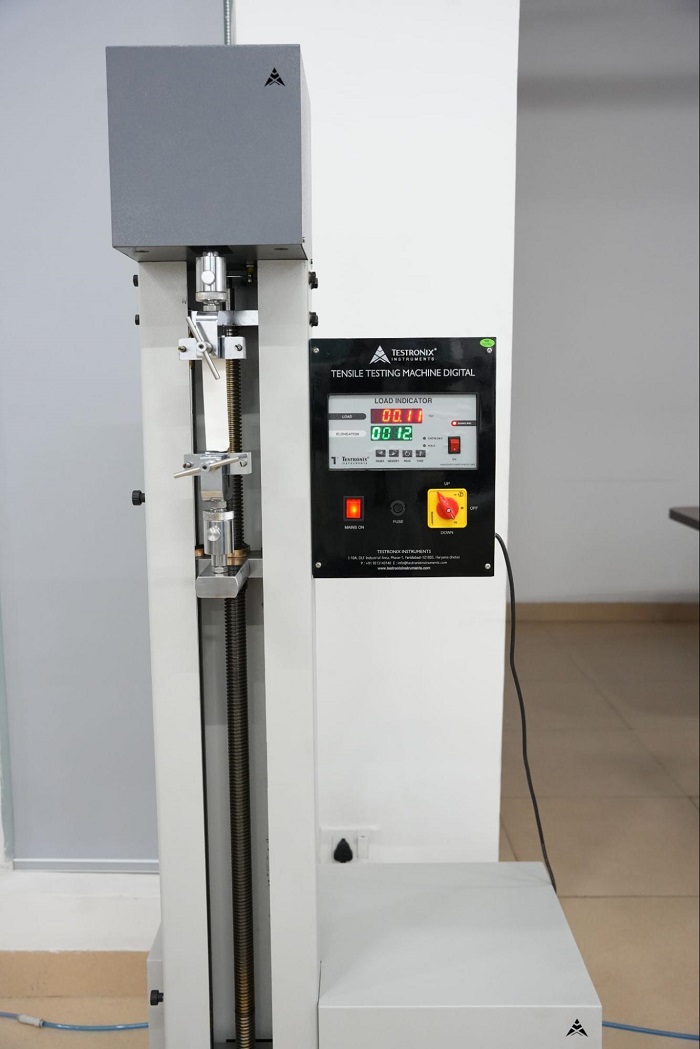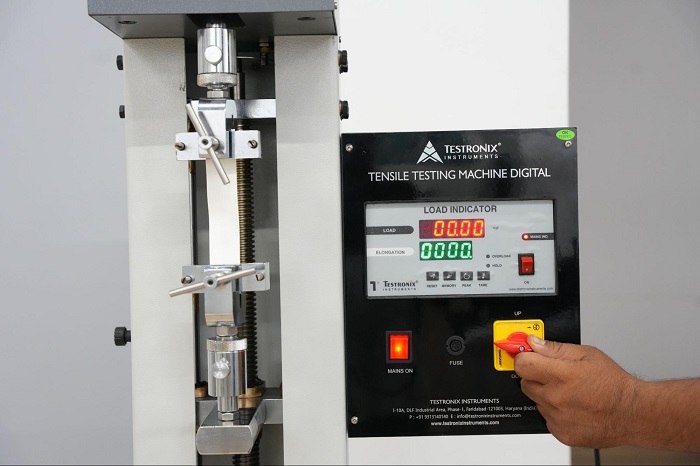Reviewed by Anurag Mishra (Sr. Technical Consultant)

Tensile strength is characterized as the greatest pressure that a material can oppose without breaking or cracking. It is very pertinent to materials utilized in ventures like development, rubber, cars, and bundling, whose properties are exposed to powers that can make them either misshape or crack.
The major importance of tensile strength is to ensure material durability and safety. In packaging, the quality of the product may be lowered anytime materials happen to have poor tensile strength and they easily tear when in transit. Testing of tensile strength enables manufacturers to check the suitability of the material for any given application so that it performs correctly under real-world conditions.

Tensile strength, according to the International System of Units, is expressed in Pascals (Pa) but, for the high magnitude that they take, megapascals (MPa) or gigapascals (GPa) are often used.
The formula to calculate tensile strength is as follows:
Tensile Strength = Force (N)/Cross-sectional Area (m2)
Where,
Force is the load on the material measured in Newtons, N
Cross-sectional Area is the area through which the force is applied measured in square meters, m2
The proper measurement of tensile strength gives the industries the confidence that the materials employed will meet the desired specifications in their applications. A few deviations in MPa can lead to failures in the product and, therefore, is a valid reason why advanced testing equipment such as Testronix offers should be used.
There are quite a number of methods for tensile strength measurement, which have all been designed to measure how various materials behave in a variety of conditions.
Tensile testing is usually done with a Universal Testing Machine. A controlled force is applied along the line of testing on the material, and force and elongation are recorded until failure. This approach provides complete information on tensile strength, elasticity, and elongation at break for the material.
In this method, the material is stretched at both ends and applied to tension until it ruptures. The force applied and elongation are measured to get tensile strength. This is one of the simplest and most straightforward forms of tensile testing but is still sensitive to tightening using clamps so as not to slip or break prematurely.

This will include a different degree of precision for each of them, and it is applied depending on the kind of material being tested, and also on the specific needs of the application. The tensile strength testers made by Testronix are designed with appropriate testing methods so that manufacturers can obtain accurate data required for their specific needs.
Industrial companies that do not conduct tensile strength testing are at risk of a range of dangers, from product recalls and operational failures to legal liabilities.
This is why a tensile strength tester becomes a must-have in the quality control processes. It will enable manufacturers to have data on how materials will react under tensile forces, thus enabling the prevention of risks in its exposure and aiding it to meet safety standards.
A tensile strength tester helps a person catch the weaknesses in material early and therefore foreclose more costly after-market failures.
The maximum stress a material can tolerate up to the point that it breaks when stretched or pulled is termed tensile strength.
Testing tensile strength is crucial to ensure that the material will encounter forces that a product would meet in real applications so as not to incur failures or products that might harm people.
The tensile strength can be measured in Pascals, but more commonly for industrial applications, megapascals, and gigapascals are used.
Giving the manufacturer true tensile strength results in the production of safer, more reliable products and reduced risk. Working with Testronix and state-of-the-art tensile strength testers places you at the forefront of opening wide precision doors across the range of industries to success.
Testronix is an industry leader in the development of advanced material testing equipment. With well over a decade of experience, the company has made its way into becoming a trusted partner for manufacturers across industries. Testronix tends to focus on delivering accurate, reliable, and durable testing solutions that come backed by a team of experts who are constantly innovating to meet the overall industrial standards evolving with time.
What sets Testronix apart is its customer-centric approach. Guiding clients through selecting the correct testing equipment through after-sales support ensures that all clients are empowered and able to maintain the highest standards of quality control, especially with its tensile strength testers, which are made to deliver accurate results so that materials meet the requirements mandated by the industry in terms of safety and performance. Such a service has made Testronix the preferred choice among manufacturers.
Contact Information:
Phone: +91 9313 140 140
Email: info@testronixinstruments.com
Website: Testronixinstruments.com